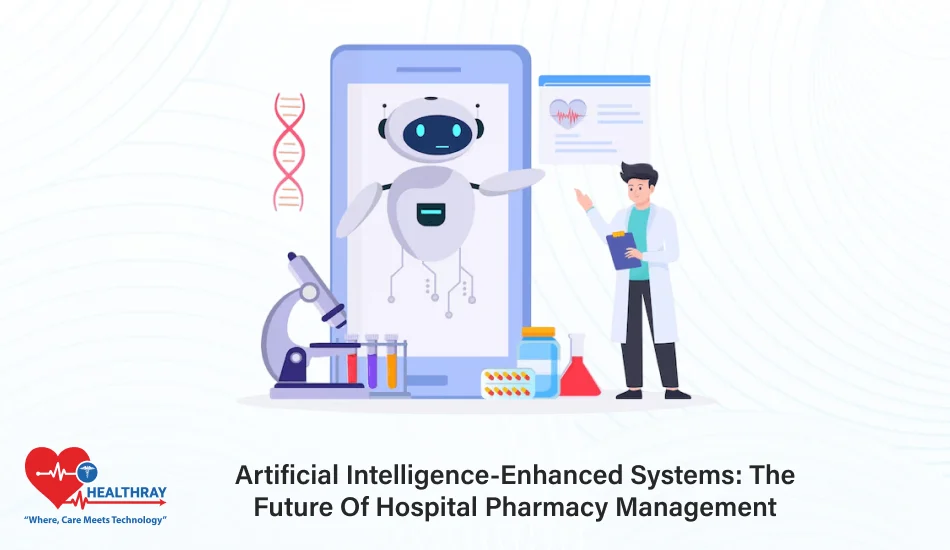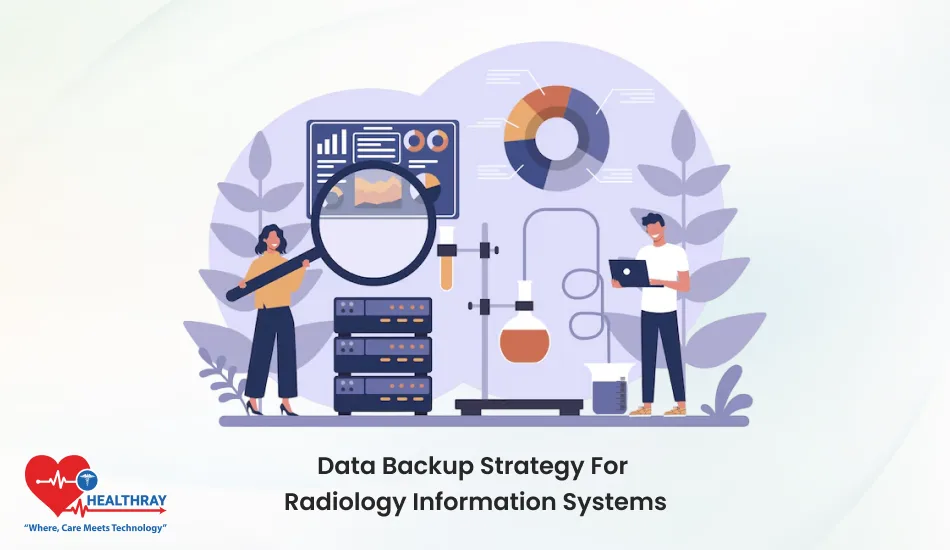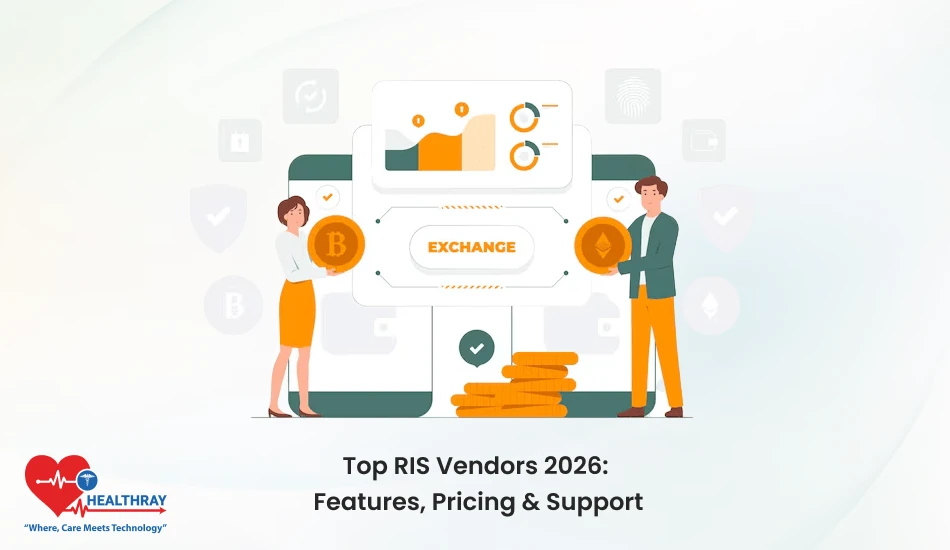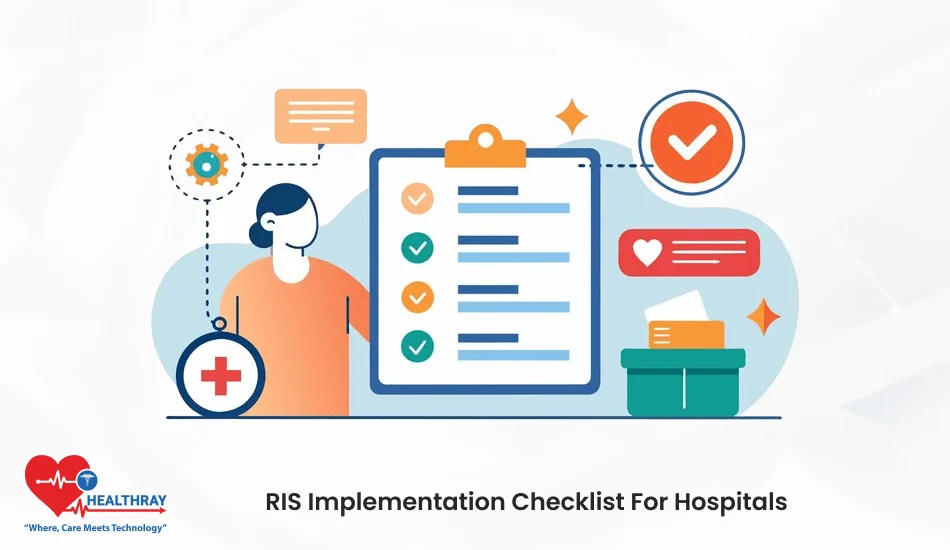The role of the hospital pharmacy is facing fast changes. Probably, one of the biggest drivers for such transformation concerns artificial intelligence. AI is not just a buzzword anymore; it’s a game-changer when it pertains to optimizing workflows and minimizing errors in order to enhance patient outcomes in pharmacy management.
But the moot question is, what about the future of those hospital pharmacies considering an AI-infused system? In this post, we are going to explore how artificial intelligence is reshaping the Pharmacy Management System, the opportunities it’s creating, and several challenges that are to be addressed by decision-makers. You’ll glean actionable insights on how hospitals can use these advancements to improve care and streamline operations.
Current Challenges in the Management of Hospital Pharmacy

At the center of patient care, the pharmacy in a hospital supplies the correct medication to the right patient at the proper time. Challenges within this industry include
Medication Errors: These can occur on many levels, from prescribing and dispensing to administration, despite stringent protocols, and sometimes with grave consequences.
Labor-intensive workflows: Pharmacists have to invest a lot of time in repetitive tasks like inventory management and verification of prescriptions, which becomes a limiting factor for concentrating on patient-centric activities.
Shortage of staff: This has always been the plight of the health sector, and pharmacies are no exception. This puts a lot of pressure on the available personnel, which can lead to burnout.
Compliance: With ever-changing regulations very often requires exhaustive recordkeeping and updating that is usually cumbersome when performed manually.
Increasing costs: Some of the operational costs are increasing, and it’s tough to maintain the efficiency of hospital pharmacies in now-dwindling budgets.
Why These Challenges Demand AI Integration
Issues like these definitely require innovative solutions, and that’s where AI steps in. Such pain points can be mitigated by AI-powered technologies that automate routine tasks, increase precision, and reduce administrative overheads on pharmacy staff. But let’s understand some specific details about its benefits before looking at how AI works.
Benefits of AI-Enhanced Systems in Hospital Pharmacy Management
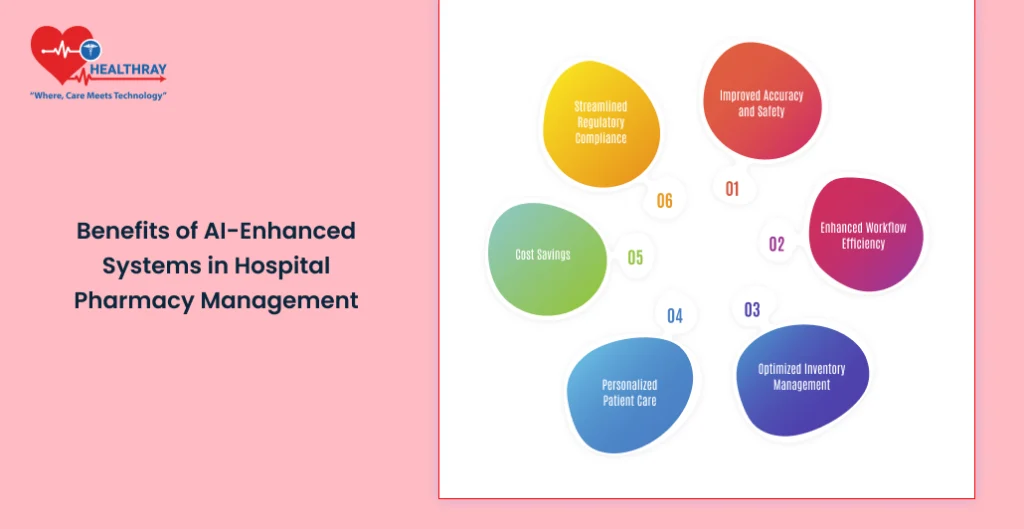
Artificial Intelligence is revolutionizing management software for hospital pharmacies and solving the problems that have otherwise seemed insurmountable until now. How does AI bring in tangible benefits?
Improved Accuracy and Safety
AI can help in preventing medication errors by analyzing large volumes of data in real time. AI cross-references the prescription with the patient’s records and flags every potential allergy, interaction, or incorrect dosage before the medication reaches the patient.
Improved workflow efficiency
AI may replace some routine tasks, like inventory checking, prescription verification, or drug dispensing. In this respect, the role of the pharmacist would be that of a clinically involved one: one who counsels patients and takes part in health teams.
Optimized Inventory Management
AI-powered tools analyze existing data and trends to predict demand for medicines, thus always keeping inventories of medicaments at optimum levels. This reduces stockouts and overstocking, ultimately saving money and improving efficiency in operations.
Personalized Patient Care
The medication plan can be personalized through AI according to genetics, past medical history, and lifestyle parameters of a given patient in order to reach greater treatment outcomes. This will definitely result in great levels of satisfaction from the patients.
Cost Savings
AI systems decrease operation costs by reducing waste, improving resource allocation, and reducing errors. Savings resulting from such strategies may be reinvested in better patient care and investment in modern technologies.
Regulatory Compliance Simplified
AI systems can monitor constantly changing regulations and ensure that pharmacies continue to stay in compliance. Automation of reports and documentation reduces the administrative burden and helps avoid costly fines.
Challenges in the Implementation of AI in Hospital Pharmacy Management
While AI has many advantages, implementing it into the hospital pharmacy system holds a host of challenges. Understanding these will provide the basis for successful integration.
High Initial Costs
Most AI systems require a significant upfront investment in hardware, software, and training-a far from easy challenge to adoption in budget-strict hospitals.
Integration with Existing Systems
Most hospitals have legacy systems installed at their pharmacies. Generally speaking, integrating AI into such systems is highly technical; it requires the involvement of experts and takes time. This usually requires collaboration across departments.
Data: privacy and security concerns
With AI systems handling highly sensitive patient information, there is considerable concern about privacy and compliance with HIPAA. In the event of an information breach or misuse, possible litigation and further loss of trust would ensue.
Workforce Resistance
Pharmacists and staff will be afraid that AI is going to take their jobs or change the jobs completely, so this should be plainly communicated: AI is meant to help and not replace them.
Lack of Skilled Personnel
Implementation and maintenance of AI will require a skilled workforce in the form of IT professionals and data analysts, which are not available in all healthcare settings.
Regulatory and Ethical Challenges
Regulations concerning the use of AI in healthcare are still inchoate. Hence, agreements must be worked out very carefully with every hospital in order to avoid ethical dilemmas or issues of non-compliance.
Practical Steps to Adopt AI in the Management of Hospital Pharmacy

Effective integration of AI in the management of a hospital pharmacy has to be very deliberate and well thought out to be successful, in spite of challenges. Here’s how health institutions can navigate doing so effectively:
Conduct a full needs assessment:
Start off by focusing on where the particular challenges lie within your pharmacy. Identify the specific areas-from inventory management to patient safety to workflow efficiency-that will most benefit from the integration of AI. In this way, you can be sure that your investments align well with your organizational priorities.
Gain Stakeholder Commitment
Involve the hospital’s administrators, pharmacy staff, and IT teams early in the process. Clearly articulate the benefits, but consider cost, privacy concerns, and impacts on the workforce. Involving the staff in the decision-making will instill trust and acceptance.
Choose the Right AI Solution
And not all AI systems are created equal. They will vary by functionality, scalability, and compatibility with existing systems. Tailor your solution to the needs of hospital pharmacies and choose a vendor with an established background in healthcare.
Investment in Staff Training
After all, successful AI implementation is always about the people using it. Training of pharmacy staff to use and interact with AI systems, interpret outputs, and be able to perform basic troubleshooting on their own will build confidence and ensure smooth integration.
Ensure Data Privacy and Security
Create partnerships with compliant vendors concerning healthcare regulations to provide holistic cybersecurity for sensitive patient and pharmacy data, making sure the handling of such data is secure.
Pilot and Test the System
Testing the performance of an AI system should first be done on a small scale prior to full-scale implementation. Pilot projects test for bugs, refine the workflow, and measure the impact of the system on operations before an extended rollout-which could minimize disruptions.
Monitoring and Optimizing
AI systems always require monitoring and continuous optimization. Establish KPIs regarding performance in terms of error reduction, cost savings, and efficiency enhancement. This will provide the relevant insight to make adjustments over time.
Future of Hospital Pharmacy Trends
Integration of AI in managing a hospital’s pharmacy is just the beginning. New technologies and innovative applications are further going to change the landscape. Following are some of the future hospital pharmacy trends:
AI-Powered Predictive Analytics
In the future, AI will use large volumes of patient and operational data to predict trends and outcomes. For instance, predictive analytics can provide alerts on what level of medication should be inventoried within a pharmacy based on seasonal patterns or patient demographics.
Integrating it with the Internet of Medical Things
IoT medical devices, like smart pill dispensers and connected diagnostic devices, will interact with the AI to support the pharmacy software in optimizing its workflow. These will be used for real-time monitoring of the medication adherence status and for proper optimization of the treatment plans.
Personalized Medicine and Pharmacogenomics
Undoubtedly, AI will be a strong driver in advancing the cause of personalized medicine. It considers genetic data to recommend which medicines and dosages would best suit each patient to optimize the treatment outcome with minimum side effects. Natural Language Processing – Communication Enhancement Use of NLP technologies will facilitate better communication between the pharmacist, healthcare provider, and patient. Medication-related queries, patient education, and clinical decision-making are made through AI-enabled chatbots and voice assistants.
Automation beyond dispensing:
Automation is going to make the dispensing function not only more complex but also involve workflows like scheduling of staff, optimization of procurement, and tracking regulatory compliance. This would mean that teams in the pharmacy can devote more time to patient care.
AI in Remote Pharmacy Services
AI will enable the scaling up of remote pharmacy services as telehealth gets increasingly integrated into healthcare. AI systems facilitate virtual consultations, automate prescription refills, and ensure timely, correct medication delivery.
Integrating Blockchain for Secure Data Sharing
A mix of AI and blockchain will go a long way in enhancing data security and interoperability. That would mean that pharmacies can safely share data across the healthcare system for better collaboration and continuity of care.
Conclusion
The incorporation of AI into the management of hospital pharmacies is much more than a technological step-up; it’s an overall strategic makeover. AI solves key pain points identified in medication errors, inefficient workflows, and growing costs, hence enabling pharmacies to offer safer and more personalized care. Seldom do administrative heads of hospitals, directors of pharmacies, or health decision-makers get an opportunity to adopt AI in a manner that will lead them to reach operational excellence with improved patient outcomes. It always starts with need, exhaustive planning, and embracing innovation. Challenges are going to be aplenty, but they pale before the efficient data-driven system of pharmacy operations. The future of the Hospital Management System is now. It’s time to take the lead in adopting AI-enhanced systems and redefining the standard of care.
